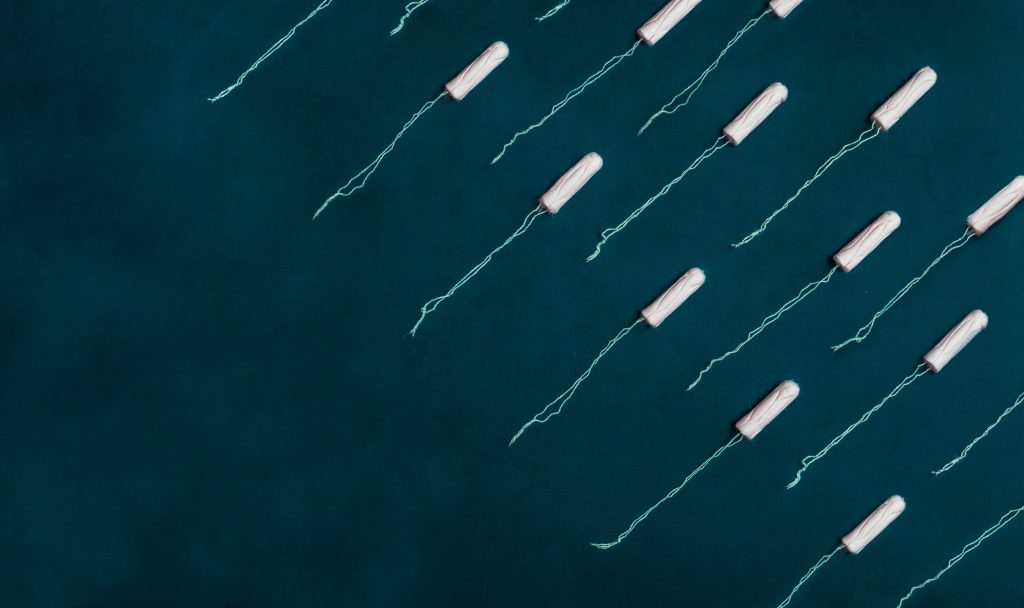Dr Philip Banfield calls for an all-Wales policy to ensure sanitary products are provided in hospitals
A century after the UK gave women the right to vote, Wales is about to erect its first ever public statue of a historical woman – not biblical, fictional or royal – in the image of Betty Campbell. Sadly, I can’t pretend to be surprised it took so long. In many fields, tackling inequality is a two-speed battle with women often winning their rights much later than men.
Health is no exception. Although generally women and girls have greater health and social care requirements compared to men across their lifetime, there are indications that current health and social care services are failing their specific health needs.
Period poverty epitomises this inequality – hidden, taboo, unaddressed. Reliable access to female sanitary products, such as pads or tampons, is essential for the health and wellbeing of women with periods and yet the current system for distribution can leave those most vulnerable with no option other than to go without.
Last year, following in the steps of the Scottish Government, the Welsh Government pledged £1m to improve the provision of sanitary products in schools and food banks. This is important progress – no girl should be embarrassed to go to school because of her period and no one should have to choose between food and hygiene – but more needs to be done within our health services.
Hospitals, like schools, should be perceived as safe havens, not sources of anxiety. What happens when a patient who requires sanitary products does not have any with her, cannot buy any and has no friends or family able to bring her some into hospital? I hear regular stories of staff donating from their own personal supplies. Being embarrassed for want of such a basic need in 2019 is just wrong.
Doctors throughout the UK are sounding the alarm bell with an impassioned plea – driven by a motion from medical students passed at the British Medical Association (BMA) Annual Representative Meeting last June – for the UK, Welsh, Scottish and Northern Irish governments to provide female sanitary products more widely, and for free. Since passing this motion, the BMA has submitted freedom of information requests to all UK health boards and trusts. The results, published this month, confirm wild variation and serious shortcomings in the provision of free sanitary products for hospital inpatients.
To begin with, nowhere in the UK is there a health board or a trust with a policy on the matter. In Wales, only three health boards out of six said they can provide sanitary products free of charge to any inpatients who may require them and just one has sanitary pads and tampons readily available to purchase on all its sites with inpatient beds. In other Welsh health boards, the products can be available to purchase but not at all sites and often at restricted times.
Last year we celebrated the 70th anniversary of our NHS and praised its universality. Now we need to be consistent. If we want to remain proud of our NHS, we must make sure our hospitals provide fair treatment to all inpatients, regardless of wealth and mindful of gender-specific needs.
Wales is grappling with some complex health inequalities; this one is quite straightforward. Period supplies are too expensive for some. It is simply unacceptable that there are still women and girls, often vulnerable or on low incomes, who cannot access these essential items in our hospitals.
As much as we applaud local grassroots initiatives, we need to see an urgent political response across Wales. The Welsh Government must therefore shape and implement an all-Wales policy to ensure sanitary products are easily provided to all inpatients for the duration of their stay and easily accessible by hospital staff across all health boards.
This doesn’t mean we need to ignore the environmental damage caused by disposable period products; supply of eco-friendly products does not cost the earth, it saves it. A change in policy would create an opportunity to educate our patients on the benefits of using alternative products, free provision models a future generation that cares about itself and its planet.
The Betty Campbell statue is due to be erected in Cardiff in the summer of 2020 to celebrate our nation’s hidden heroines. By then we could have put an end to period poverty and eased the burden of everyday heroines struggling to make ends meet.
All articles published on Click on Wales are subject to IWA’s disclaimer.





